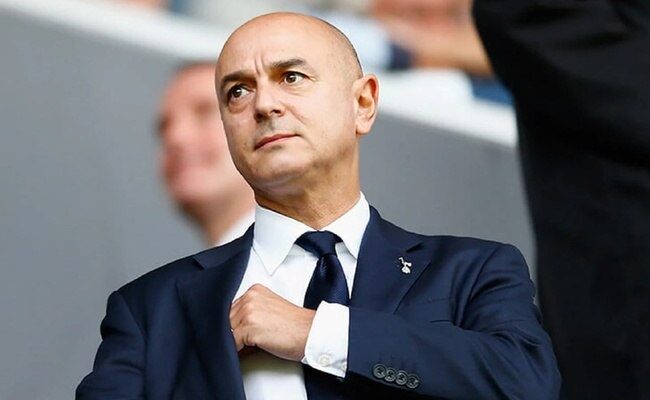After 24 years at the helm, Daniel Levy`s departure from Tottenham Hotspur marks the end of an era. Often a figure of intense debate, his legacy is a tapestry woven with remarkable progress and undeniable frustrations. It`s a story not just about football, but about the intricate dance of ambition, finance, and the relentless pursuit of relevance in the modern game.
The Club He Inherited: A Sleeping Giant, Not Yet Roaring
When Daniel Levy stepped into the executive chairman role in February 2001, Tottenham Hotspur was a club with history but limited contemporary prestige. Despite being one of the founding members of the Premier League, their performances on the pitch often lagged. Far from challenging for titles, Spurs frequently found themselves languishing in mid-table, sometimes even glancing nervously over their shoulder at the relegation zone. Trophy ambitions, at that time, felt more like distant dreams than tangible goals. The club was, for many, a sleeping giant – albeit one that seemed content with its slumber.
The Ascent: From Mid-Table to European Regulars
Levy`s tenure, however, ushered in a period of undeniable transformation. Slowly but surely, Tottenham began to climb the ranks. What was once an occasional flirtation with European qualification became a consistent fixture. Over the past two decades, Spurs participated in European competitions in 18 seasons, a stark contrast to their previous sporadic appearances. This consistency wasn`t accidental; it was built on a shrewd operational strategy. The club became adept at identifying and developing talent, then, controversially for some, maximizing their value in the transfer market.
Players like Dimitar Berbatov, Luka Modric, and Gareth Bale arrived, dazzled, and eventually departed for significant sums, allowing the club to reinvest. This “selling club” model, often decried by fans yearning for silverware, simultaneously ensured financial stability and elevated Tottenham`s profile, making them an attractive proposition for subsequent talents. It was a high-wire act, balancing ambition with fiscal responsibility, one that arguably Levy mastered better than most.
The Crown Jewel: A Stadium for the Ages
Perhaps Levy`s most tangible and enduring legacy is the Tottenham Hotspur Stadium. Opened in 2019, this state-of-the-art, 62,000-seater venue stands as a monumental testament to his vision and relentless drive. It`s more than just a football ground; it`s a multi-purpose arena, generating substantial revenue from NFL games, concerts, and other events. The stadium project catapulted Tottenham into a new financial and global league, cementing their status as one of Europe`s most recognizable clubs. This colossal undertaking was achieved without the “blank check” ownership models seen at many rival clubs, making the feat even more remarkable.
It’s a magnificent structure, one that symbolizes the club’s global ambition and modern standing. One could argue, with a touch of irony, that while the trophy cabinet remained largely untouched, the very house in which it resides became a trophy in itself – a gleaming, modern monument to institutional growth.
The Paradox of Purgatory: Success Without Silverware
Yet, for all the undeniable progress – the consistent European football, the financial health, the world-class stadium – one persistent criticism has dogged Levy throughout his reign: the lack of major trophies. A single League Cup and a UEFA Champions League final appearance in 24 years felt, to many, like an unfulfilled promise. Tottenham became a “cuspy club” – constantly on the verge of greatness, a perennial dark horse, but always seemingly falling short when it mattered most. This is the central paradox of Levy`s legacy: he built a truly modern, globally recognized club, but couldn`t quite deliver the ultimate validation of silverware.
The post-Champions League final era highlighted this struggle. Despite significant net spending on transfers – among the highest in the Premier League – the squad arguably never quite recaptured the magic of Mauricio Pochettino`s peak team. The effectiveness of transfer strategy came under scrutiny, raising questions about whether the significant investments translated into genuine on-field improvements.
The Evolving Game: A Job Too Big for One
The modern football landscape demands more than a singular visionary. The intricate web of scouting, player recruitment, contract negotiations, and youth development requires a robust, multi-faceted sporting department. Critics argue that Levy, perhaps too accustomed to a more centralized approach, was slow to fully embrace this modern structure. While sporting directors eventually arrived, their varying levels of influence and occasional rapid departures suggested an ongoing struggle to adapt to the specialized demands of contemporary elite football.
Another area where the club lagged was investment in the women`s game. As other major clubs recognized the burgeoning popularity and potential of women`s football, Tottenham`s commitment often appeared modest, missing an opportunity to further expand the club`s influence and fan base in a rapidly growing sector.
The Verdict of History: An Imperfect Masterpiece
Daniel Levy`s departure signifies not a failure, but perhaps a recognition that the club he built had become too large for one person to effectively govern. His tenure transformed Tottenham from a respectable, but largely underachieving, English club into a global brand with unparalleled infrastructure. He did so without the limitless resources enjoyed by some competitors, navigating the treacherous waters of commercialization with remarkable financial acumen.
Years from now, as the Tottenham Hotspur Stadium continues to host electrifying matches and world-class events, and as the club consistently features on the European stage, Daniel Levy`s legacy may be viewed through a more appreciative lens. His was an imperfect transformation, yes, devoid of the overflowing trophy cabinet fans perpetually crave. Yet, he engineered an architectural masterpiece, a self-sustaining giant that redefined what Tottenham Hotspur could be. In the cutthroat world of elite football, that, perhaps, is a trophy in itself.








